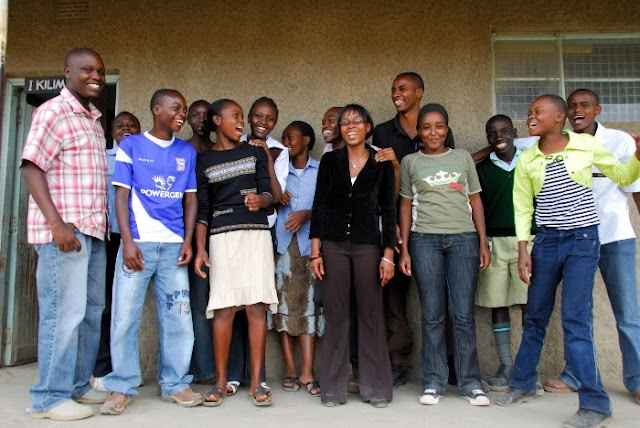Youth in sub-Saharan Africa constitute a large and growing portion of the region’s population, yet remain underserved by family planning and reproductive health programs.
New Security Beat recently interviewed
Margaret Wamuyu Muthee, an
Africa Program Scholar at the Woodrow Wilson Center, about this problem. Muthee is currently working on a project documenting both the opportunities and challenges for young people growing up in Kenya.
New Security Beat: How do you define youth?
Margaret Wamuyu Muthee: The African Union has defined youth as every person between the ages of 15 to 35 years, while the United Nations defines youth as persons between the ages of 15 and 24. I will be concentrating on the age group defined by the African Union.
However, I will not only be relying on age. There are other aspects that I must take into consideration. Many children assume the roles of an adult or a care-taker when they are at an early age. Children in African nations face different challenges [compared to children in Western countries], as there are fewer opportunities for transition in Africa.
NSB: What are some opportunities and challenges facing youth in Kenya?
MWM: This is a very important stage for exposing youth to the available support and teaching them about the social economy. Some of the difficulties lie in the lack of resources and corruption, such as misuse of funds that are provided to the government by outside sources.
On a more positive outlook, youth are very resilient. They have a wide range of potential and capacity that can be utilized right away. African nations, just like China, have an enormous population that can be a human resource. All we have to do is positively tap into their potential to make good changes.
NSB: Which programs are taking actions to empower youth in Kenya?
MWM: The Youth Enterprise Development Fund (YEDF) works to increase economic opportunities for Kenyan youth in nation-building through enterprise development. YEDF also works to lower the unemployment rate and teach certain skills for future employment. One downside of this fund is that even though it provides money, it does not provide mentorship for the youth who execute the programs.
Another program is Yes Youth Can! This $45 million initiative was created by the U.S. ambassador to Kenya and USAID. The program is designed to create local and national networks of youth leaders to advocate peaceful economic and governmental reforms. The wonderful thing about this organization is that it is completely youth-driven.
NSB: Are these programs enough to address youth challenges?
MWM: Sometimes these programs are seen as too small and too late. Youth are seen as violent, and these programs are made to keep them busy. Programs need to address all the facts, from start to finish.
NSB: Are there programs specifically targeted at female youth?
MWM: We need programs that address pregnancies, HIV/AIDS, and education for young women. These education programs not only need to teach them about pregnancies and HIV/AIDS, but also educate women about their rights: how to say “no” and object to certain actions.
However, there are complications when it comes to female rights. There are sexual offense laws that females do not even know about. The implementation of these laws can be non-existent. Either the police system is flawed or accessing lawyers is too expensive for females. And even if a lawyer is hired, the rapist can pay off a judge, so the judge will not convict him.
NSB: Are family planning and reproductive health incorporated into youth education?
MWM: There are already reproductive health campaigns in Kenya. One example is the ABC program: Abstinence, Be faithful, Condom use. Everyone these days, in rural and urban environments, knows about HIV/AIDS. There needs to be more programs regarding family planning and health; there is only a limited amount of knowledge getting passed around about those two issues.
There is a new proposed Kenyan constitution that bans abortion unless a doctor permits the abortion due to health reasons, or if the mother’s health is in critical danger. Many females die because they cannot legally get an abortion and try to abort their baby on their own, or accept services from a backstreet clinic.
We also have cultural practices that put up barriers to the spread of family planning and health. One such example is the practice of early female marriages. Girls as young as 10 years old will be forced to marry a much older man. These girls have not had proper education on reproductive health or family planning.
In addition, adults are still too shy to address youth that are having sex, and are embarrassed to talk about their health if they have HIV/AIDS. We need to educate more youth and provide the means for them to live safer lives.
Margaret Wamuyu Muthee is the Programs Manager for Kenya’s University of Nairobi Center for Human Rights and Peace, and a current scholar in the Woodrow Wilson Center’s Africa Program.
Josephine Kim and Marie Hokenson are cadets at the United States Military Academy at West Point and interns with the Woodrow Wilson Center’s Environmental Change and Security Program.
Photo Credit: “The Mentees and their mentors,” used courtesy of flickr user The Advocacy Project.
 A Publication of the Stimson Center.
A Publication of the Stimson Center.







